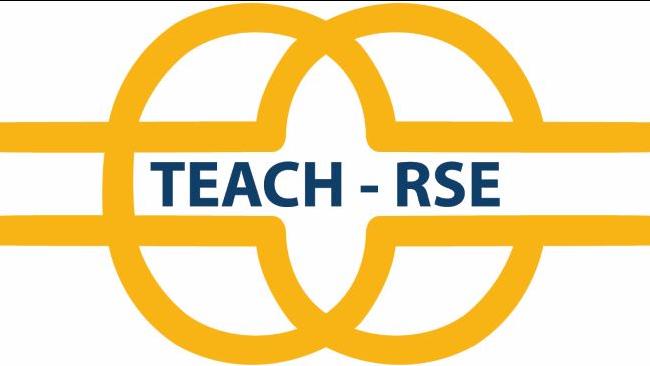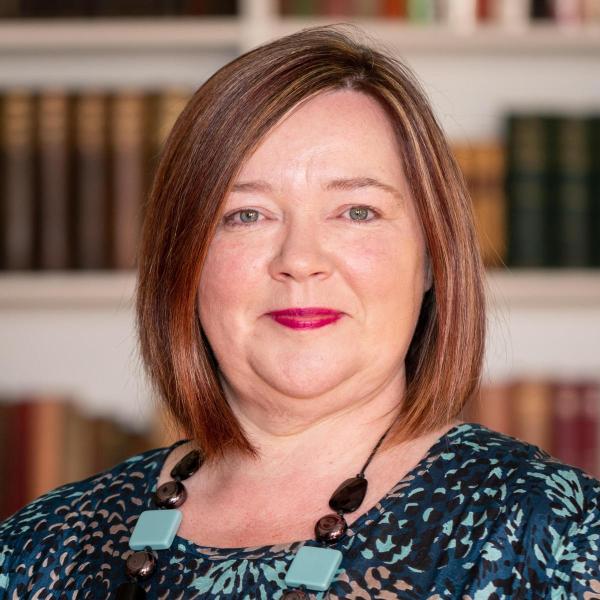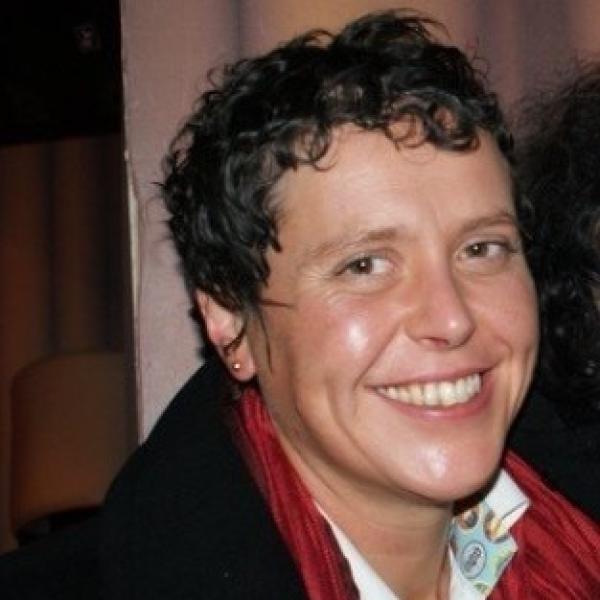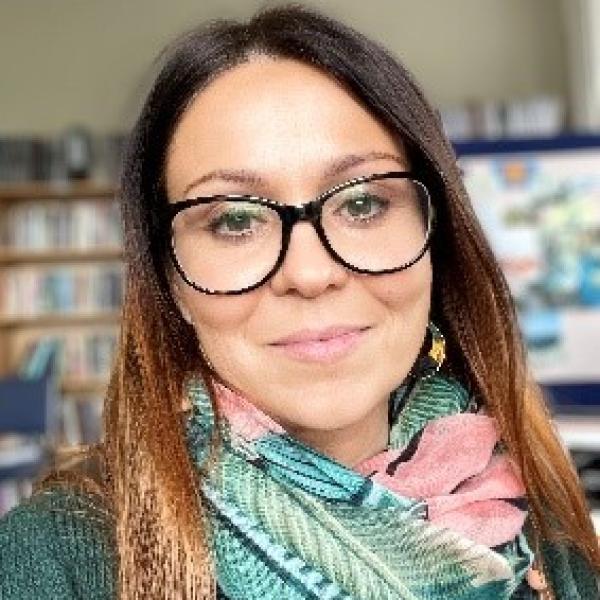
TEACH-RSE
Teacher Professional Development and Relationships and Sexuality Education

TEACH-RSE
TEACH-RSE, was funded through an Irish Research Council Coalesce Award 2019/147 Strand 1E supported by HSE Sexual Health and Crisis Pregnancy Programme, Health and Wellbeing, Research and Strategy.
The first research of its kind in an Irish context, TEACH-RSE explored the professional development of teachers at Initial Teacher Education (ITE) to teach Relationships and Sexuality Education (RSE). Adopting a systemic approach and employing multi-perspectival, mixed methods and multi-phased research design, the TEACH-RSE examined RSE provision in Initial Teacher Education (ITE) through the following research studies:
- A Systematic Review of the international, peer-reviewed literature on the provision of sexuality education in ITE to student teachers.
- A Documentary Analysis of the publicly available documentation for the academic year 2019/2020 on RSE and RSE-related provision across a sample of 14 primary and post-primary ITE programmes.
- A mixed methods study, employing an online survey and focus group methodology, of student teachers’ perspectives on RSE provision at ITE (sample predominantly from primary ITE programmes)
- A qualitative interview study of Initial Teacher Educators’ perspectives on the provision of RSE on primary and post-primary ITE programmes.
- A consultation with key stakeholders, which contributed to the development of evidence-based and stakeholder-informed TEACH-RSE Recommendations for the provision of RSE at ITE.
Key Findings
i) Systematic Review
The Systematic Review found variation in the provision of sexuality education during ITE for student teachers internationally. There is generally a limited number of topics covered and limited opportunities for critical reflection across ITE programme curricula.
ii) Documentary Analysis
The Documentary Analysis found no explicit reference to RSE in the sample of publicly available ITE programme documentation. Social, Personal and Health Education (SPHE) was identified in 5 of the 26 modules which met the inclusion criteria for this study. Reference to RSE-related content was inconsistent across programmes and generally limited. One primary programme and one post-primary programme were identified as delivering most of the content identified in the Documentary Analysis.
iii) Mixed Methods study with student teachers
Sixty-one per cent (61%) of the student teachers surveyed felt the amount of input they had received in relation to RSE was ‘Not Enough’. Sixty-two percent (62%) of respondents indicated that their perceived preparation at ITE to teach RSE was ‘Worse’ (34%) or ‘Much Worse’ (28%) when compared to their professional preparation in other subject areas at ITE. Nearly all the respondents (94%) reported an intention to teach RSE once qualified. Ninety per cent of respondents agreed or strongly agreed that there was a need for continuing teacher professional learning and development in RSE. Similar to the survey findings, focus group interviewees underlined the importance to them of teaching RSE, but called for more input on RSE at ITE and supports for their professional learning and development in this area, post-qualification.
iv) Qualitative interview study with Initial Teacher Educators
Initial Teacher Educators perceived RSE at ITE to be of high relevance and foundational to a student teacher’s ITE, while also referencing RSE as a ‘sensitive’, ‘grey area’. They reported minimal time allocation to RSE input on ITE programmes and typically indicated RSE provision as being one-off inputs. They highlighted the importance of scaffolding student teachers to critically engage with, and reflect on, their values and beliefs with respect to RSE. The optimal model of RSE provision in ITE suggested by the Initial Teacher Educators was a core/mandatory component with additional RSE electivity/specialism options available. Furthermore, Initial Teacher Educators articulated the need for the development of accredited SPHE/RSE qualifications post-ITE.
Drawing on this research, and informed by the consultation with key stakeholders in the area, a number of TEACH-RSE Recommendations are made.
- There is a need for system-wide, research-informed, and systematically reviewed teacher professional learning and development standards for RSE provision in ITE.
- Teacher professional learning and development for RSE should be provided as a continuum with a model of core plus elective/subject specialism at ITE and further, specialist teacher professional learning and development programmes post-ITE.
- RSE provision in ITE should be conceptualised as holistic, comprehensive, inclusive, rights-based and developmental.
- At ITE programme level, adopting a multi-dimensional approach, RSE provision should address student teachers’ content knowledge of, pedagogical skills in, and attitudinal dispositions toward RSE provision ensuring a clear SPHE/RSE pathway for graduate teachers.
- A system-wide, collaborative, integrated approach should be taken nationally to RSE provision including inter-departmental, inter-agency and across and within ITE programmes.
TEACH-RSE Recommendations provide an evidence-based, stakeholder-informed foundation for policy and practice development and leadership in relation to RSE at ITE. It is envisaged that on implementation they will enable sustainable and inclusive professional learning and development for teachers of RSE. Thus, offering a significant contribution to meeting global and national strategic objectives for the realisation of lifelong optimal sexual health and wellbeing for all children and young people in Ireland, today and into the future.
TEACH-RSE Research Team

Dr Kay Maunsell
Dr Catherine (Kay) Maunsell
Dr Kay Maunsell (she/her/sí) is the Principal Investigator on the TEACH-RSE research project.
Kay is an Associate Professor of Psychology and Human Development in the School of Human Development, Dublin City University. She holds a BA (Mod) and PhD in Psychology from Trinity College Dublin. Working at the nexus of Teacher Education and Psychology, Kay has contributed to the professional development of teachers and psychologists for more than two decades, most recently, at the DCU Institute of Education and DCU School of Psychology. Kay maintains an active research and publication profile in the broad fields of developmental psychology, teacher education, social justice and human rights and sexuality education. Dr. Maunsell is an active member of national and international organizations devoted to research on child and adolescent development and on sexuality studies. Her research, to date, focuses on the role of education in addressing inequality and promoting inclusion, and in particular, on the rights of children and young people, especially those most marginalized, to comprehensive, inclusive, rights-based Relationships and Sexuality Education RSE. She is a founding member and member of the Steering Group for the Centre for Human Rights and Citizenship Education, DCU.

Dr Ashling Bourke
Dr Ashling Bourke
Dr Ashling Bourke (she/her/sí) is the Co-Investigator on the TEACH-RSE research project.
Ashling is an Assistant Professor in Psychology and Human Development in the School of Human Development, Dublin City University. She holds a BA in Psychology from NUI, Galway, an MA in Forensic Psychology from UCC, and a PhD from Trinity College Dublin. Her primary areas of expertise are in social, developmental, and forensic Psychology. She is an active researcher and has published her research in a number of areas, including; sexual health behaviours in Ireland, sex education, children's rights, child sex abuse, violent offending behaviour, and child protection in Education. Her teaching and research centre around the areas of social justice, child protection and children's rights, and wellbeing and development. She is a member of the Steering Group for the Centre for Human Rights and Citizenship Education, DCU.

Dr Aisling Costello
Dr Aisling Costello
Dr Aisling Costello (she/her) was a post-doctoral researcher on the TEACH-RSE research project.
Aisling is an Assistant Lecturer of Psychology, in the School of Languages, Law and Social Sciences in the Technological University Dublin. She holds a BSc and PhD in Psychology from Dublin City University. Her research interests include developmental psychology, well-being, social media, body-image, identity and relationships and sexuality education. Her doctoral research involved an investigation of the impact of social media use on body image and well-being from a critical feminist perspective. She is particularly interested in the relationship between social media use and well-being, body image and identity. Aisling has also worked as a researcher on projects examining approaches to reduce prejudice among primary school children; factors that facilitate children's disclosure of sexual abuse; university students' perceptions of belonging, identity and transition.

Dr Claire Cullen
Dr Claire Cullen
Dr Claire Cullen (she/her/hers) was a post-doctoral researcher on the TEACH-RSE research project.
Claire completed her PhD at Maynooth University under the supervision of Professor Dermot-Barnes-Holmes (2016) where she developed, refined and tested the Implicit Relational Assessment Procedure (IRAP) for the assessment of implicit anti-gay bias. Her PhD (funded by the Irish Research Council for Science, Engineering & Technology; the Association of Behaviour Analysis International; and Maynooth University) constituted the first ever systematic study to investigate the malleability of implicit & self-reported homonegativity. Claire is an elected professional member of the Society for the Scientific Study of Sexuality (SSSS). She has published international peer-reviewed research on sexual diversity & gender issues and co-authored the Psychological Society of Irelands (PSI) professional practice guidelines for working with LGB clients. She was the founding Chair of the PSI Sexual Diversity and Gender Issues Special Interest Group; a founding committee member of PSIs Culture and Ethnic Diversity Special Interest Group; and its Equality and Inclusive Practice working-group. Claire served as the first elected PSI co-representative to the International Network of Lesbian, Gay, Bisexual, & Transgender Issues in Psychology (INET) and recently served on the Board of Directors at Outhouse, Dublin’s LGBT community resource centre (2018-2020). She is currently an Assistant Lecturer in Psychology, at the Department of Psychology, Maynooth University.

Dr Malgosia Machowska-Kosciak
Dr Malgosia Machowska-Kosciak
Dr Malgosia Machowska-Kosciak (she/her) was a post-doctoral researcher on the TEACH-RSE research project.
Malgosia is currently a Post-Doctoral Researcher in Intercultural and Global Citizenship Education and Adjunct Assistant Professor at the Centre for Human Rights and Citizenship Education CHRCE in the School of STEM Education, Innovation and Global Studies at DCU. She holds an M. Phil and PhD in Sociolinguistics from Trinity College Dublin and was previously affiliated with the Sociology Department in TCD and with the Marino Institute of Education. She was the lead researcher and coordinator of three research projects: SPIEPS, SGMEYP and INOVATE funded by the Department of Justice, Irish Human Rights and Equality Commission and the Department of Children, Equality, Disability, Integration and Youth. Malgosia is an author of a sole monograph entitled ‘The Multilingual Adolescent Experience: Young Poles growing up in an English-speaking school’- “Small stories” of integration' being published by prestigious international publisher ‘Multilingual Matters’, Bristol, UK. She is also the co-author on a recent collaborative research report between the CHCRE and the Irish Human Rights and Equality Commission entitled ‘A report on issues facing second-generation ethnic minority young people in Ireland.’

